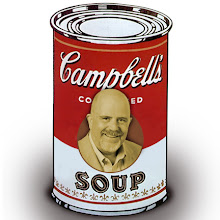If you are friendless and want to find them in all the wrong places, consider setting up a Twitter site. As someone who consults on this social media tool, I am amazed as the number of pornbots and multi-level, networking opportunities that pop up every morning on Twitter sites.
I wish there was a way for the folks at Twitter to set up an Internet protocol blocking protocol for those who break these basic rules:
1) Do not offer to show me pictures of yourself even with the line that you're working your way through medical school.
2) If I friend you, please don't send me a direct message to sell me your latest toilet water saving product. (Note: I was interested in water conservation as my wife teaches environmental science.)
So, how can novices or as Twitter people term "newbs" screen out these people? I check out a person's last 20 tweets, Those would be doctors working their way by showing off body parts typically only have one or two word tweets such as "martini." As for those aggressive sales professionals, if every tweet has the phrase "check this out" or "you won't believe this," then it's a good sign that you should block them right away.
Still, I wish there was a way for Twitter to note the IP address of those spammers and block them from their site for a week for a first-time offense. I'm curious too what you might think of ways to block spammers on Twitter so please feel free to share them.
Tags: pornbots, spam, twitter
In the Age of AI Search, Law Firms Must Focus on Legal Publishing That Gets
Their Lawyers Sourced and Cited—Not on Chasing Clicks and Website Traffic
-
Reading a recent article by Sarah Perez at TechCrunch makes it clear: law
firms are about to face the same challenge news publishers already are—a
steep ...
1 day ago



